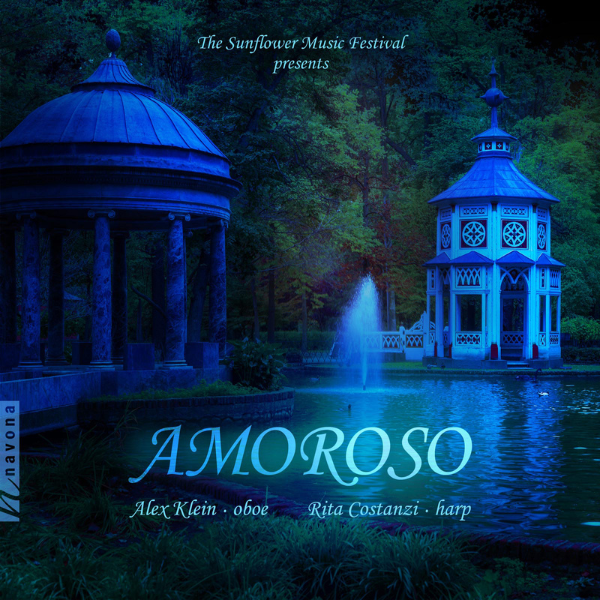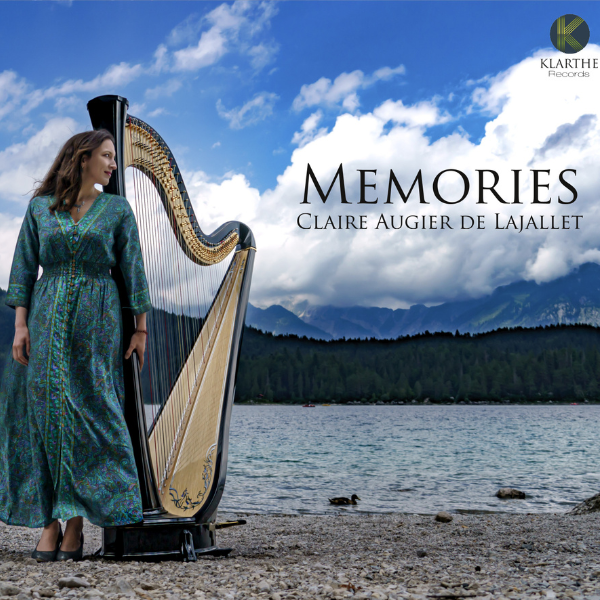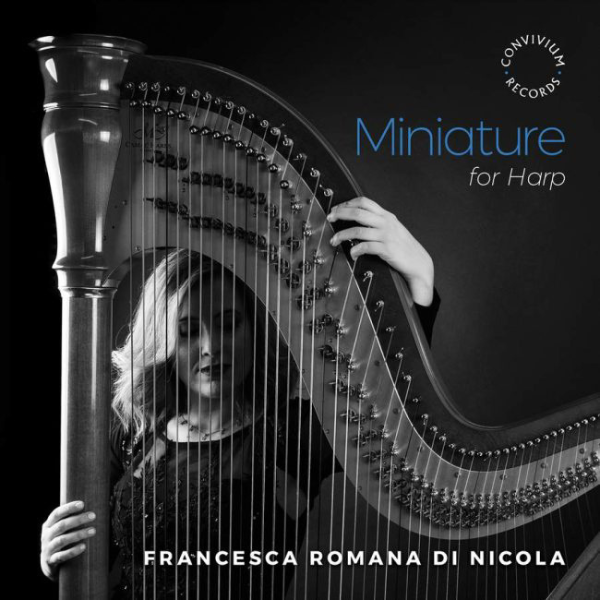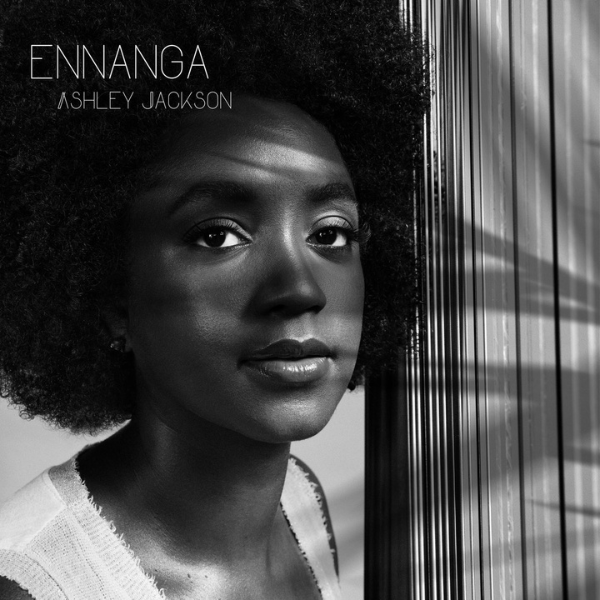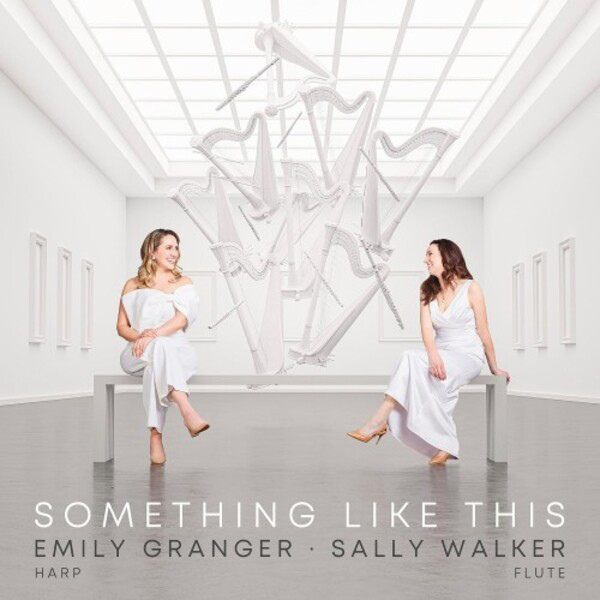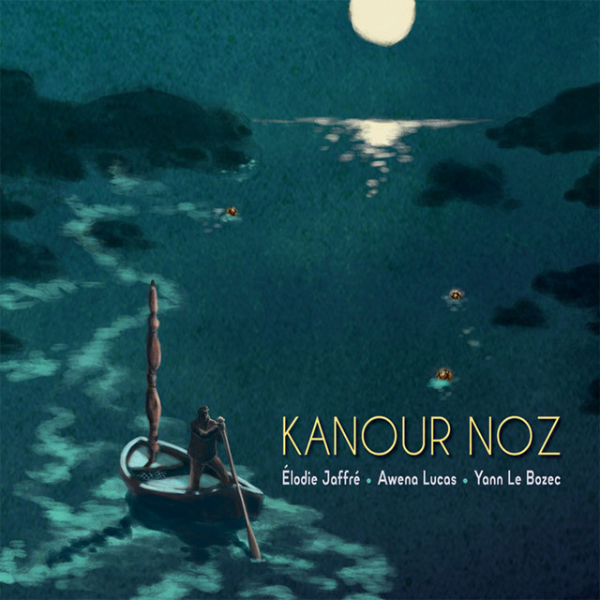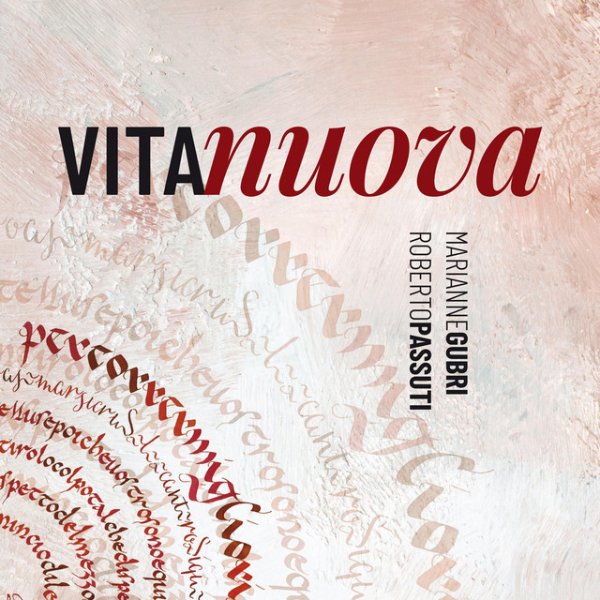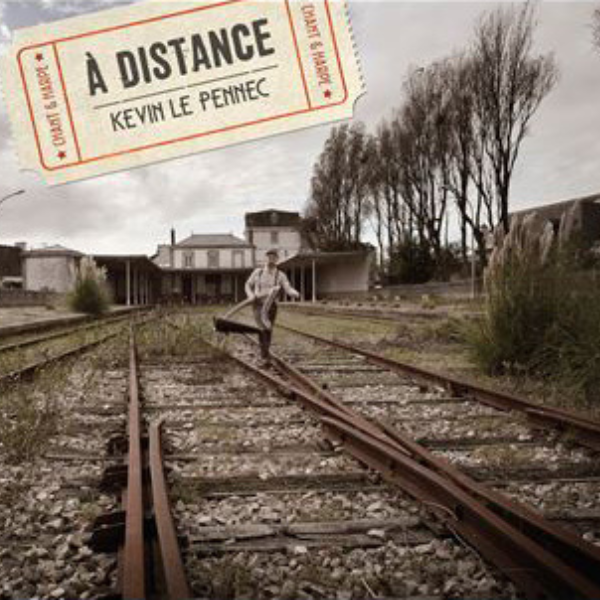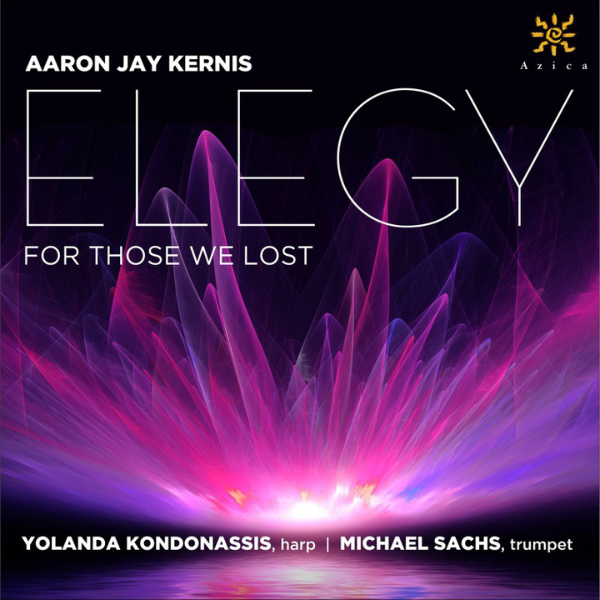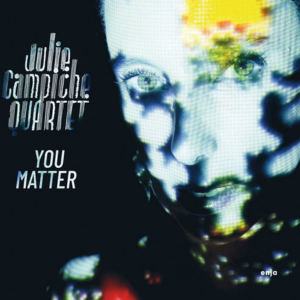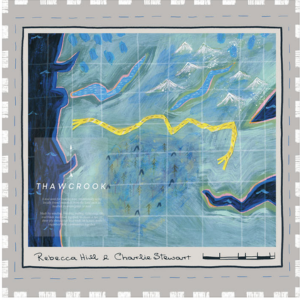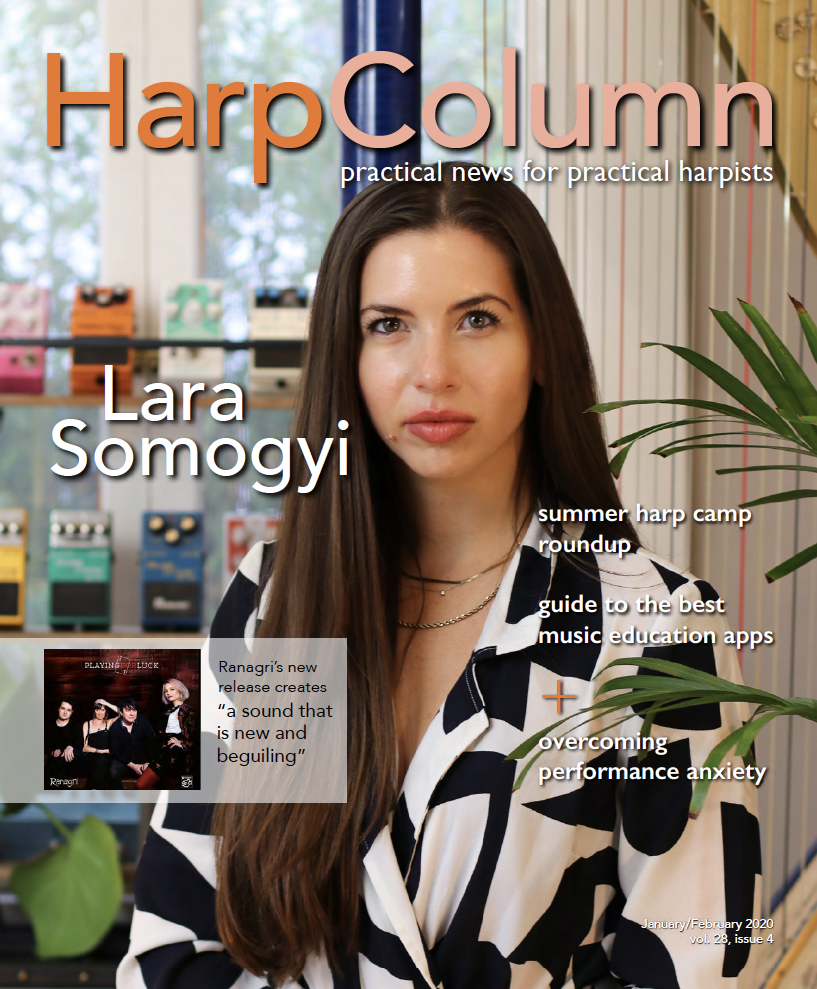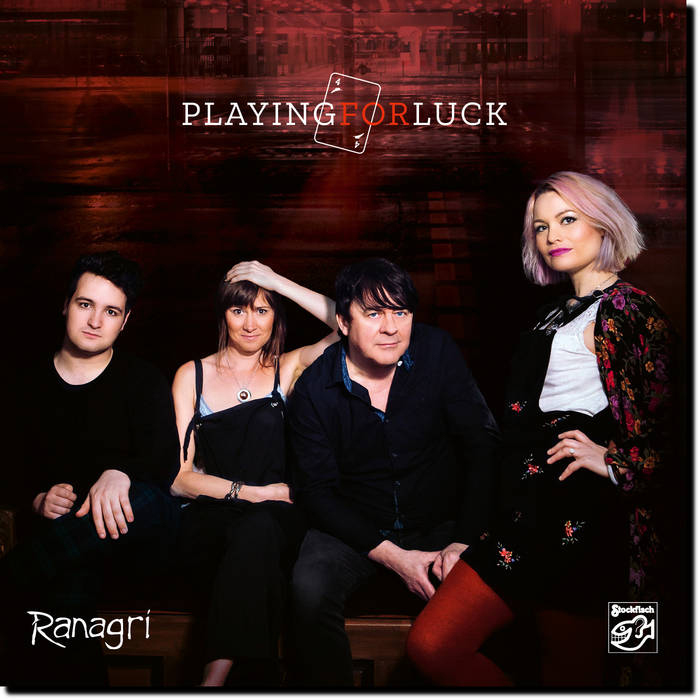
9/10
Ranagri: Ellie Turner, harp; Dónal Rogers, voice/guitar; Eliza Marshall, flutes; Joe Danks, bodhrán/percussion. Stockfisch, 2019
The ensemble Ranagri’s album Playing for Luck starts with a dark-keyed waltz, the guitar coaxing us to listen to a story being told, one we can’t will ourselves to ignore. Vocalist Dónal Rogers enters with a lush, gently trembling tenor, a wee bit of desperation cracking at the edges. “When will you return, from the edge of the world?” he asks. We’re given only a glimpse of heartbreak colored by the lowest register of the flute, a kind of music box carousel from harp plus strategically placed percussion. It’s eerie, melancholy, and absolutely exquisite.
Ranagri tells us they are a “contemporary folk/world music band.” They have a sound at once unique and ancient, as though germinating from the land that gave us these incredibly talented musicians. Made up of English and Irish players, their music has that rare quality that both invites us to dance, while also leaving us hanging on every word.
Like country music or the blues, there’s something of total exposure in music like this. The artists wear their hearts on their sleeves. Unafraid and unblinking, “Devil’s Need” is such a song that plumbs the depths of the soul. It’s insistent and relentless. “I know what you want, I know how to give it to you. You know what I need, I hope you won’t deny me,” Rogers whispers as flutist Eliza Marshall adroitly jams away, joy seeming to skitter right on the edge of anguish. Her playing is pure delight—flutes, whistles, and ethnic instruments more often than not overdubbed spectacularly in duos and trios.
“The Medication Show” showcases harpist Ellie Turner, who may be simply adding color to the rhythmic accompaniment, but her artistry in interweaving brightly timbred lines to the drive of a locomotive is inspired. It’s what makes the sound of this band so unusual. You can pick out individual voices, but it’s the alchemy of all those voices together that makes a sound that is new and beguiling.
Where you really find yourself leaning in is during “The Thief.” Rogers’ guitar paired with Turner’s harp create this wondrous sonority, like mist and memory, under the words, “Oh kiss me and tell me it’s not just a dream. Then follow me here and tonight up to the stars.” Sometimes Home exaggerates this sound quality of plucked instruments in consort. The sonority amplifies the words of longing from Rogers’ intimate and closely miked voice. I felt lonely while at the same time gently comforted by the perpetual motion of strings. Adding one high voice slightly in the distance towards the end of the song is pure genius. I let out a sigh as it finished, perceiving this band is somehow speaking my thoughts and my feelings. No, scratch that, they speak for all of us.
Joe Danks’ percussion is like daubs of paint on an audio canvas, drawing our attention to what he decides we need to hear. Most ingenious are his contributions in “Falling Down.” You tap along, swing your hips, and want so badly to let your fingers at a bodhran.
Where to classify this album? World, Celtic, folk, and contemporary all apply, but my descriptor would be original. For the purposes of this magazine and readers looking for creative ways the harp in particular can find its way in the world of sound, this album is a must for your library.
But beware. You might fall irretrievably in love.





